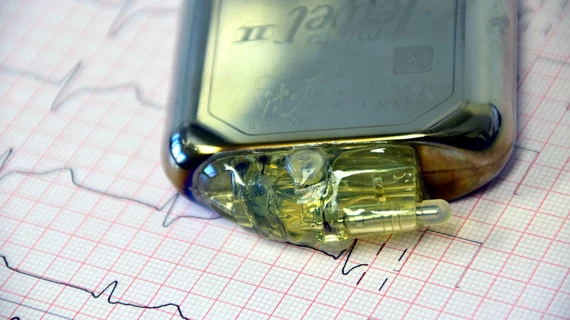Pacemaker patient selection aided by AI
Machine learning can help electrophysiologists or other heart specialists decide whether a patient is a good candidate for a pacemaker or implantable cardioverter defibrillator, according to a study published Oct. 3 in PLOS One.
Charlotta Lindvall, MD, PhD, of Harvard and colleagues set out to test the technology because predicting which patients will benefit from those devices—which provide cardiac resynchronization therapy (CRT)—is tricky even when a potential candidate meets established practice guidelines.
In addition, CRT carries risks best avoided without reasonable certainty of benefit.
The team used machine learning and natural language processing to train and test algorithms on data readily available in the electronic health records of nearly 1,000 patients before and after they underwent CRT.
The extracted data included demographics, lab results, medications, clinical characteristics and past medical treatments. They also included unstructured clinical notes, applying the NLP to extract two-word sequences called bigrams.
Comparing the patients who benefited from the intervention with those who did not, the researchers found their algorithm correctly identified 26% of the 40.7% whose heart health did not appreciably improve following CRT.
Meanwhile the algorithm’s positive predictive value was close to 80%.
“Machine learning that utilizes EHR data has the potential to support personalized clinical decisions for patients,” Lindvall et al. write in their discussion. “Validated models that run in the background of the EHR could enable recognition of numerous marginal risk factors, which by themselves may not reach significance, but put together can provide a more individualized risk prediction. This is clinically important because these methods could augment current guidelines-based approach.”
The study is available in full for free.

